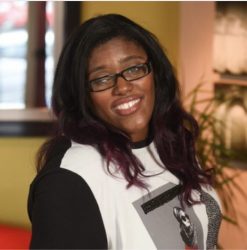This blog is provided by the IPR Center for Diversity, Equity, and Inclusion and was originally published by PRWeek.
One year after George Floyd’s murder and on the eve of Juneteenth, both moments reflecting the brutality of racism and systemic inequity, we must challenge ourselves.
Long before this turning point in our country’s history, we started with the idea that companies need to see diversity, equity, and inclusion (DEI) as an integral, transformative business value. But this moment of reckoning that we are living has demanded pressing changes in how we think, speak and act – not temporarily, not in a vacuum, but profoundly and permanently.
We hold the conviction that communicators have the power to catalyze and drive organizational change. So often, we are an organization’s connective tissue; the people to whom everyone else talks, even when they rarely talk to one another.
We are brand builders and storytellers. We are also protectors, who work to safeguard the reputation and minimize risk. That’s still our job. But it has evolved. Now, we must be the barometer of authenticity. Instead of merely proclaiming, “What we do we say,” we must ask, “What have we done?”
We know the “authenticity litmus test.” But how disciplined and vocal have you been in pushing back when you know the substance is lacking, particularly with equity, inclusion, and diversity?
Many ways of working, often paths of least resistance, do not maximize the value we offer. When weeks of approvals can mean the difference between standing by or being a leader, the time has never been more precious.
We need to act with urgency without mindlessly rushing forward, issuing statements for the sake of appearances. Words matter, but actions matter more. Both are required but actions come first, and words do not, and must not, ever serve as a substitute. With the right balance, change and transformation are possible.
The communicators who will succeed now and in the future are those who are the keepers of credibility and responsible stewards of reputation. They will challenge old ways of working and confront prioritizing perception over the reality of change.
Every organization does not need to become an activist. But they are already deeply involved in shaping our societies and values. Collectively, our next step requires honest acknowledgment that companies are not separate from the societies in which they operate, nor are their “neutral” decisions without real-life consequences.
Communicators, with their stakeholders, DEI liaisons, talent teams, and C-suites should assess progress, looking at the measurable cultural evolution of their organization and the engagement of their employees, consumers, clients, and other audiences.
Finding time for candid dialogue with stakeholders isn’t always easy. There can be several degrees of separation between communicators and company decision-makers. We encourage communicators to forge ahead, to create conditions for change, inside and outside of their organizations.
All organizations have their dynamics and internal politics. The fear of making a career-limiting move is real, and in times of economic volatility, amplified. Yet, we have spent the better part of the last 12 months emphasizing that now is not a time for companies and leaders to sit on the sidelines.
It’s time for us to take our own advice and remember that the status quo brought us to this pivotal crossroad.
As we are asked to take on tasks, from crafting and reviewing communications to creating DEI strategies, remember the path that leads to equity and justice on a global scale starts with doing a better job of saying what we mean and doing what we say.
That means that it starts with you.


Together, they co-founded True Mosaic, FleishmanHillard’s dedicated global, diversity, equity, and inclusion practice.




